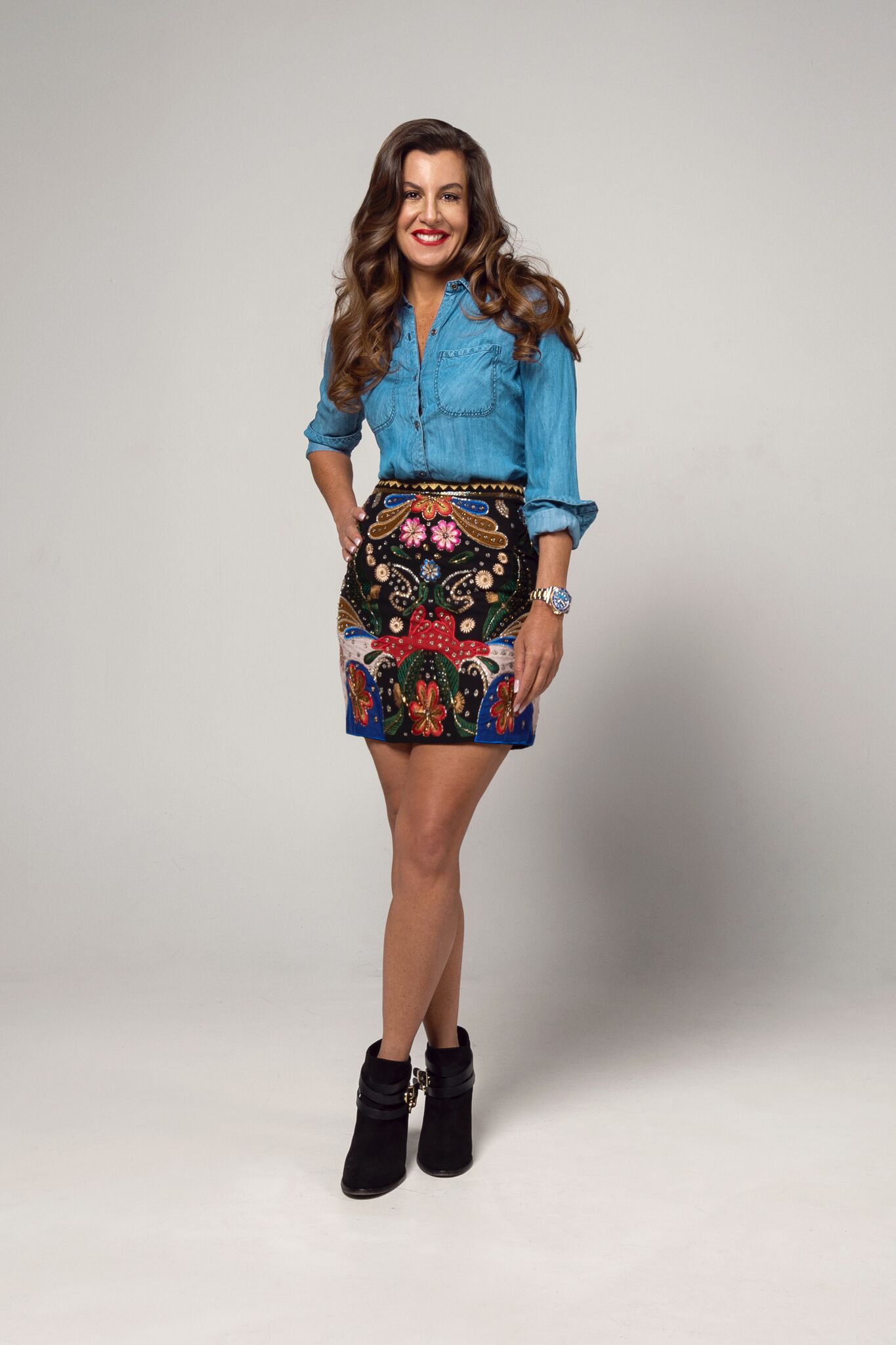This is not the first time that I have interviewed Rhonda Vetere, Female C-Suite Executive, entrepreneur, philanthropist, innovator, global technology icon, change agent, and disruptor. I am also certain that this will not be the last. However, this interview was really special because it gave me a chance to speak to her about something that was near and dear to her heart: her personal story. Several months ago I had a chance to sit and talk with Rhonda in Washington, D.C. during a private photo shoot for her upcoming book Grit and Grind. A dynamic (and quite entertaining) team was there with Rhonda primping her hair and applying make-up to her already beautiful face to produce a stunning, yet natural look. Ironically, some of the pictures would go from light and crisp to dingy and dusty, since the basis of the book is centered around what it means for people to muddy their hands as they seek success in life. As we chatted, Rhonda allowed me into a space that is only occupied by a few close individuals. By the time I walked out of the door of the photo shoot mid-morning, Rhonda and I solidified our mentorship and set in stone something meaningful beyond words. She opened up her soul during our conversation to reveal that there are many things she has experienced during her years as leader in Communications and Technology, as well as in her personal life that caused her to work hard for the success she has now achieved. Those situations not only helped to mold her into who she is today, but also set the foundation for the content of this book. As she reflected on each scenario, Rhonda discovered that there was a common theme: hard work is dirty! No one can achieve anything in life without somehow getting a little dust on their clothes. The grime under your nails may suggest that you had to dig deep into the mounds of debris in your life to truly unearth the gems inside of you. Rhonda has managed to collect a treasure chest filled with jewels from her life experiences that were never intended to be smooth. Some are still rough around the edges and a bit jagged in places, but one thing is for certain: each one of them shines!
Everything that you do is very intentional. You have a purpose behind it. What would you say was the purpose for writing this particular book?
Thank you for asking that question and noticing that everything is with a purpose and precise and very targeted. The purpose for this book was two-fold. One was to help each other learn. When I say “each other” I mean everyone, no matter what age group they are. They could be growing up to older in life and just words of wisdom that I have learned from every culture around the globe. The other is to leave behind a legacy. I think I am at a point in my life and in my career where I just want to teach people along their path and their journey and make difference. So the purpose of this is two-fold to help folks in their lives daily, their work life, and actually show them real life examples of what it takes to maneuver and navigate through tough situations with real substance behind it.
So when you think about this being a legacy, why would you say it is a page turner?
Hmmmmm, it is a page turner because I haven’t told a lot of these stories to anyone in my life that I’ve experienced. Someone might say, “I’ve learned something” or “I didn’t know you were in the DMZ in Korea and that happened!” It’s just about real life experiences. It’s a page turner because it’s suspenseful, but it’s teaching you principles in life and I’m giving stories that are actual live stories and my friends are like, “Oh my gosh! That really happened in the world?! You were there? What did you do? How did you apply it? How are you still alive? How did you take that risk? How did you know to take that risk?” Keep reading and each chapter builds upon itself.
All of these are going to be follow up questions. You said it is about giving life stories, taking a risk, and it’s suspenseful. You could have written it at any time. You could have written it before now or you could have waited several years to write it. Why did you write it now as opposed to some other time?
Wow Rachel. That’s a great question. One of my mentors pushed me over and said, “You know, you really need to write this book. It’s been years in the making and the time is now.” I said, “Why did you say that?” He’s very prominent in the world. You’ll meet him at the book party, Rachel. I asked him why, my eyes just looked and he said, “You need to do it not just for others, not just the next generation, but for the generation growing up now that is coming in school.” It is written, don’t take this the wrong way, for someone who is not working, who is in school, a student, an adult… It’s every audience. It is written that way and the time is now because I have done multiple turn arounds on companies. It’s not one facet; it’s global and it couldn’t have been at the worst time, Rachel, in my life to do it to be honest. But the time was now just because the state of where the world is. The state of the world is very important, number one and I am getting a lot of questions more than ever, “Will you be my mentor?” and you know, Rachel, I only take on a handful of mentees, maybe three or four, literally.
I feel so privileged to be able to say that I am your mentee! I love it!
Thank you! I love it too! I wrote it [the book] for people that want to learn more about that as well and what it takes. Being a mentor is in here as well. It has what it means for people to take life seriously, principles for living an extraordinary life, and grinding it out. It’s called Grit and Grind for a reason. Things in life don’t come easy and I think with the state of the world, everyone thinks they look on social media and everything is so perfect. You know what? It’s a hard way to get to where you want to be in life. If someone tells you differently they are not telling the truth. So I wrote it because right now because I have the experience behind me, the substance, multiple facets, and multiple companies. When you see the ten principles, they’re consistent. I’ve applied them for years and I’ve instilled them on people in the work force for over 20 years so I know it works.
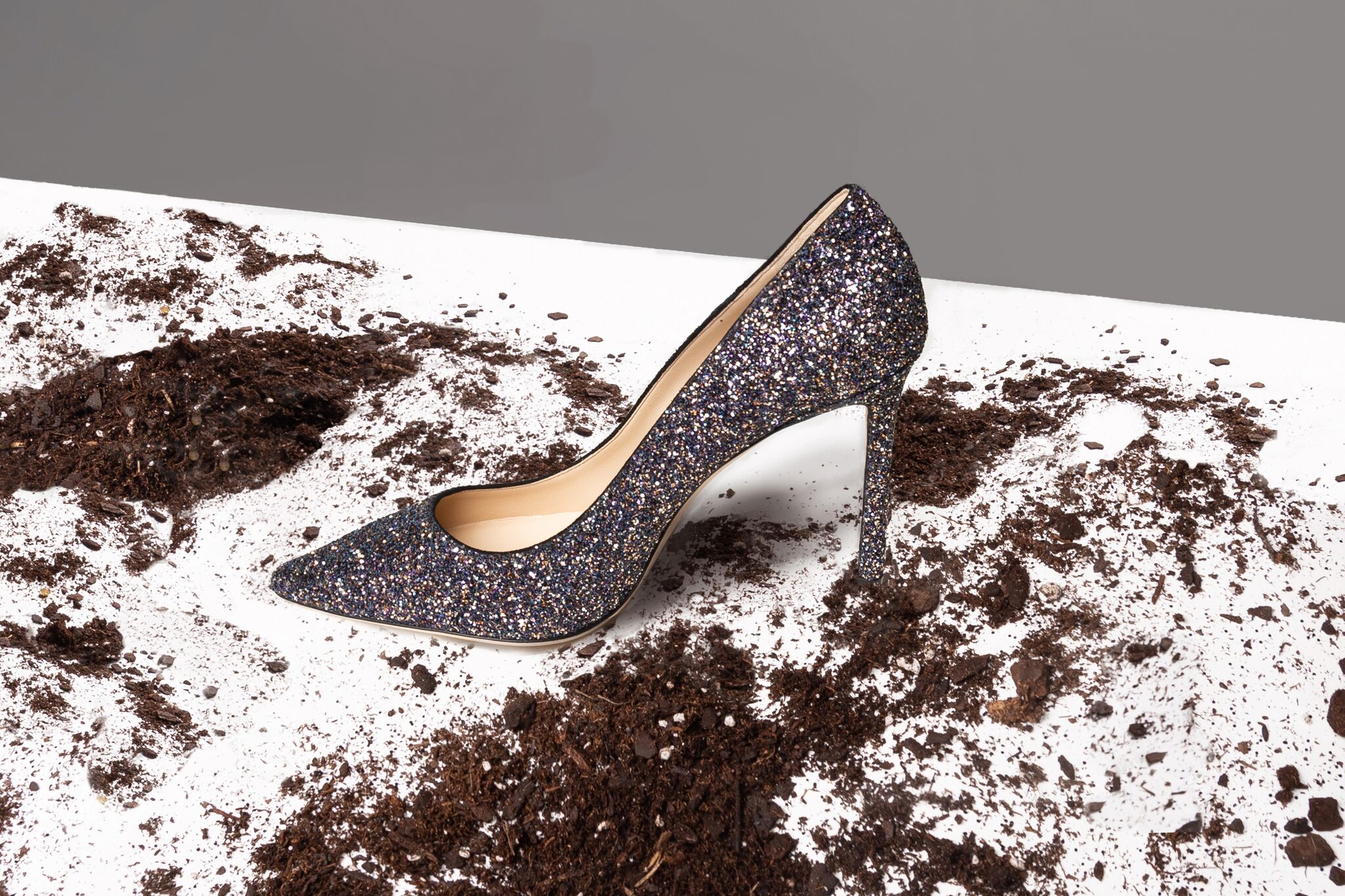
We go to book club meetings all of the time and I want you to think what would a meeting be like with your book at the selected reading for the month?
Oh, that would be interesting! I welcome that because it wouldn’t fall under leadership or self-help. It could be under sports, or it could be under any book club, Rachel, which I think is great because Grit and Grind is not targeted towards one select thing. I think it would be a lot of conversation for people to talk about how they need to communicate more openly, how they do it in their life, how they deal with conflict. I think it would be a page turner when talking about non-verbals and how a book club is and how people prepare for certain situations. How people have gone through life and what their stories are for everyone who has a team. For a book club you might say, “What do you mean by that Rhonda?” Everyone has a team. Everyone around you has a nucleus team. It might be your family, it might be at work, it might be your church, but you have a team. At a book club you can really talk about who is in my bunker. Who is my team? You might not even realize who your team is and how you navigate through life. I think it would be an in-depth, philosophical conversation. You know I love those, Rachel! It wouldn’t be, “Oh, here are your ten steps.” That’s not what this book is.
Well I wonder when people start to talk about their teams, what do you think that might reveal in terms of either the lack of a team or the type of support that the current team provides for them?
I think it will influence both. Folks might say I don’t have one and wake up with their eyebrows raised and go, “Oh my gosh! Who IS my team?” Then they think, “Who is my support group?” It’s 2 a.m. in the morning, you have five people on your hand, who are you going to call? Who’s in your bunker? Who is that? I hope this book has those conversations and when they read it, the book pushes people to think like that and be prepared for that. You might say, “Oh my gosh. I don’t have a team to call!”
That would be difficult to think to yourself “I don’t really have a support system.” That would be very revealing for people to say if they had to count out five people, who could I really depend on in this moment?
Exactly and that’s my challenge! That’s in the book. I want folks to know that being prepared is 2 a.m. who are you going to call? It doesn’t mean “I’m going to call so and so.” You need to have their number memorized because technology doesn’t work. It’s not just that you have their iPhone; do you even know their phone number? That’s what I hope people will think at a book club, that these conversations will really talk and force content out like that with lively experiences and get into the meat of that. Like you said: who can you call at two? Do you know their number or do you have it in your iPhone? People don’t even memorize phone numbers anymore.
No they don’t. They just pick up their phone and press a button. Those people might be in their Favorites, but they don’t know those number by heart.
Mmmm hmmmm. So grinding it out in this book and those life lessons are multiple things. You asked about the book club, flushing out conversations, the team. I think when you ask that question people will be like, I don’t have a team or I need one or oh my gosh, I’m not prepared.
People have a lot more associates than they do friends. We are able to socialize with our associates maybe go out for a drink or two, but would we have them in our homes? Would we trust them with our children? That is definitely something to consider.
It sure is! Oh my gosh! Well, you guys are welcome in my home any time!
Do you have red wine?
I do! That’s my favorite!
Great! Then we have to come over to see you! What would you say is possibly your favorite chapter in the book and why would it be your favorite?
I would say “Being Prepared” because it’s saying how to not get kidnapped in India. It’s at the start of the book, which I like the title of that on purpose because it gives a life story early on in my life. Going back to your question about why did I write this, I have so many of these stories weaved in so people learn with real life experiences and how to react. It’s a real life experience and I have not told that story in depth, so I’m putting my heart and soul out to the world with all these stories in this book. I want to leave a legacy. I really want this to resonate with the content. You know, being in the industry and technology and a Female C Suite Executive, I really want folks to connect so I think that one you’ll really like. That’s the first one. Then it might not surprise you because I have a degree in Communications, it’s about communicating. To communicate openly is Chapter 7: “Speak Now or Forever Hold Your Peace”, which means make sure you communicate openly and don’t let things fester. I think in today’s world how we communicate is a lost art. I really do. It’s a balance, right, because I am in technology. It’s a balance of picking up the phone. I love texting, don’t get me wrong, but I also love to have enriching conversations and tell people what’s on your mind with being direct without the fluff. Just saying openly what’s on your mind. I think people just don’t want to offend others, but I really think communication is the foundation of life in all facets, so that’s another one. I’m biased! I like them all to be honest!
Well of course you do! You know the author!
No! I’m very hard on myself, Rachel. It took me forever to come up with this title. It really did.
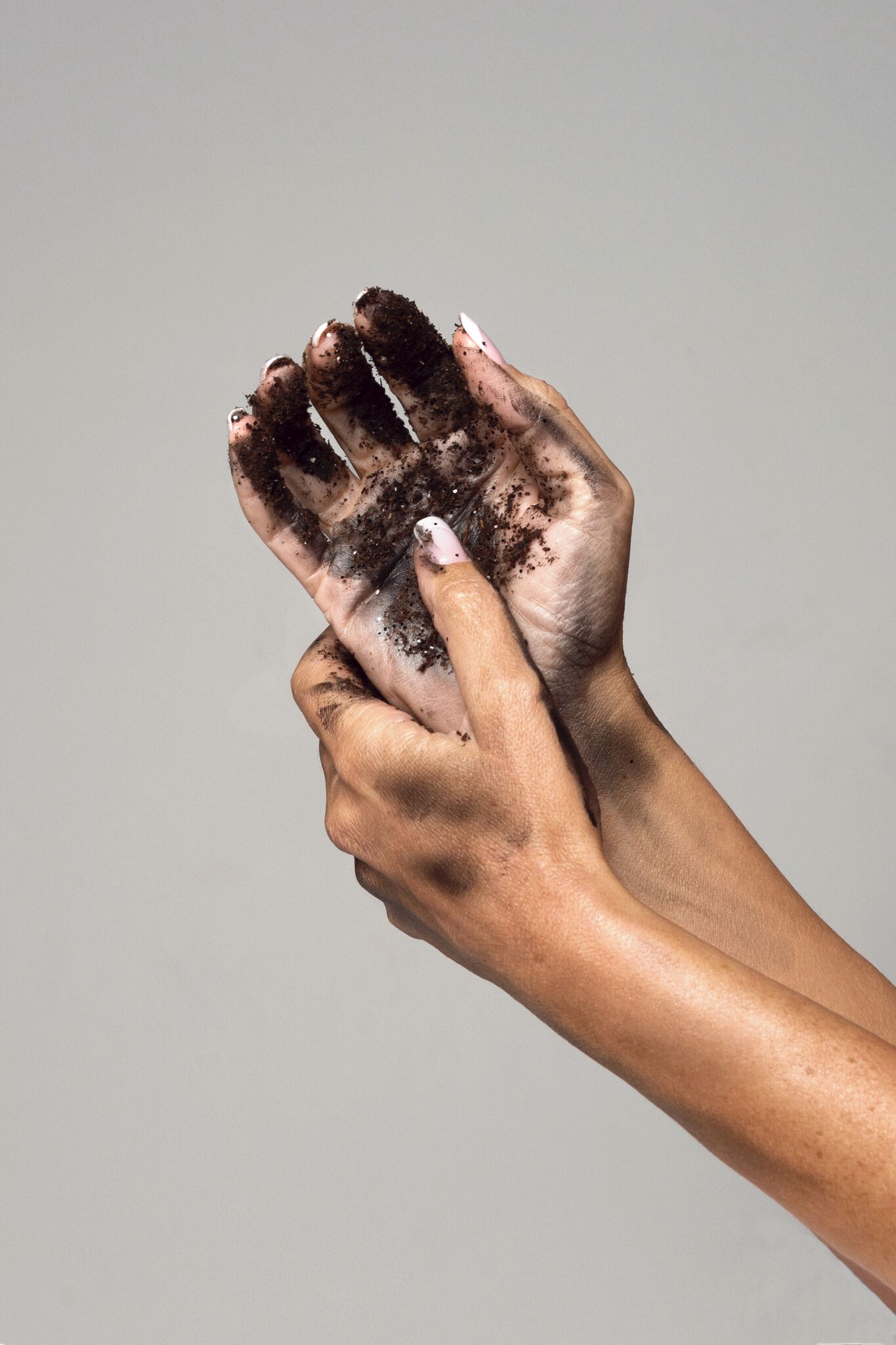
It’s very appropriate. It makes you think about getting dirty. It gets you right into the things that you are doing instead of being hands-off. Being hands-on means that you have to get dirty and dusty a little bit.
People forget that in life and communication, going back to that, is that I am all about non-verbal cues. I talk a lot about checking your cues in this chapter, verbal and non-verbal, and setting your expectations. I talk about eye contact, what a firm handshake means, using sense of humor only when it’s appropriate, or not taking your laptop to a meeting. Whew! There are just so many little things in this chapter that globally you pick up in different cultures and this is a global book, Rachel. It’s so global! I did that purposely, too because I’m at a time in my life where I’ve had a global experience. Being on the road so much, learning of different cultures. I think a lot of people will learn from different nationalities from this book.
That may really help to answer this next question. People read various genres of books and it depends on what may be going on in their lives. Maybe they will read a self-help book. Maybe they will want to read a romantic comedy or anything that is based upon how they are feeling at that time. You said that this was a global text. What type of individual do you feel most needs to read this book at this time in order for it to be a blessing to them.
In order to be a blessing to them, the person right now would need to be in high school, junior high AP classes, which would be interesting, to get their hands on this before they do an internship, Rachel. Then someone in a leadership role, a high level leadership role. It goes for multiple facets for it to be a blessing. There are a lot of leaders I talk about in here, good and bad leaders. We take a blend of them and I think leaders can always learn.
My sister and one of my best friends said that people do not leave jobs; they leave bad bosses. If you don’t have a good leader, it makes it difficult for a person to want to go into work each day. There were probably a lot of people who were not excited to go back to work after the holidays.
Oh my goodness! In this book I talk about leading by example, what it means to be a good leader. If you’re slamming your door, who wants to work for someone like that? I am very proud of having a team that has followed me for 18 years, certain anchors in my life. I talk about them in this book. We have lived through 9/11 together. We have lived through every crisis in the world together. I like working with them. They like working with me. I love their families. They would be the first to say that they wouldn’t follow anyone that was mean. You wouldn’t follow anyone that was mean to you and doesn’t know what you need. You have to respect each other. That is so true. The majority of the time you leave because of a bad boss unless you are stagnant and you need to grow, which is purposeful.
Let’s think about how you needed to grow as part of this book. Would you say that it was more of a catharsis for you where you were able to flush things out of your system or would you say that it was a way for you to fill yourself up again?
I wouldn’t say fill myself up because I had all these things to put it in one place; I would say it is a gift. It is a gift to everyone. A gift to the world, to spread my heart again. I keep coming back to that, Rachel, from our first conversation.
Right and that is definitely a major theme of how you are constantly sharing yourself with others. Maybe you can think about it as your heart is already so full that you are sharing what you have.
Thank you! I hear the questions: “Please be my mentor. What does it take?” Now I can say to people, please read this and then call me.
They can get somethings out of it and then have a more in depth conversation about what we have all learned as a result of reading.
It’s a gift. You’re right; my heart is full. I can’t wait for you to read it, Rachel. I really can’t.
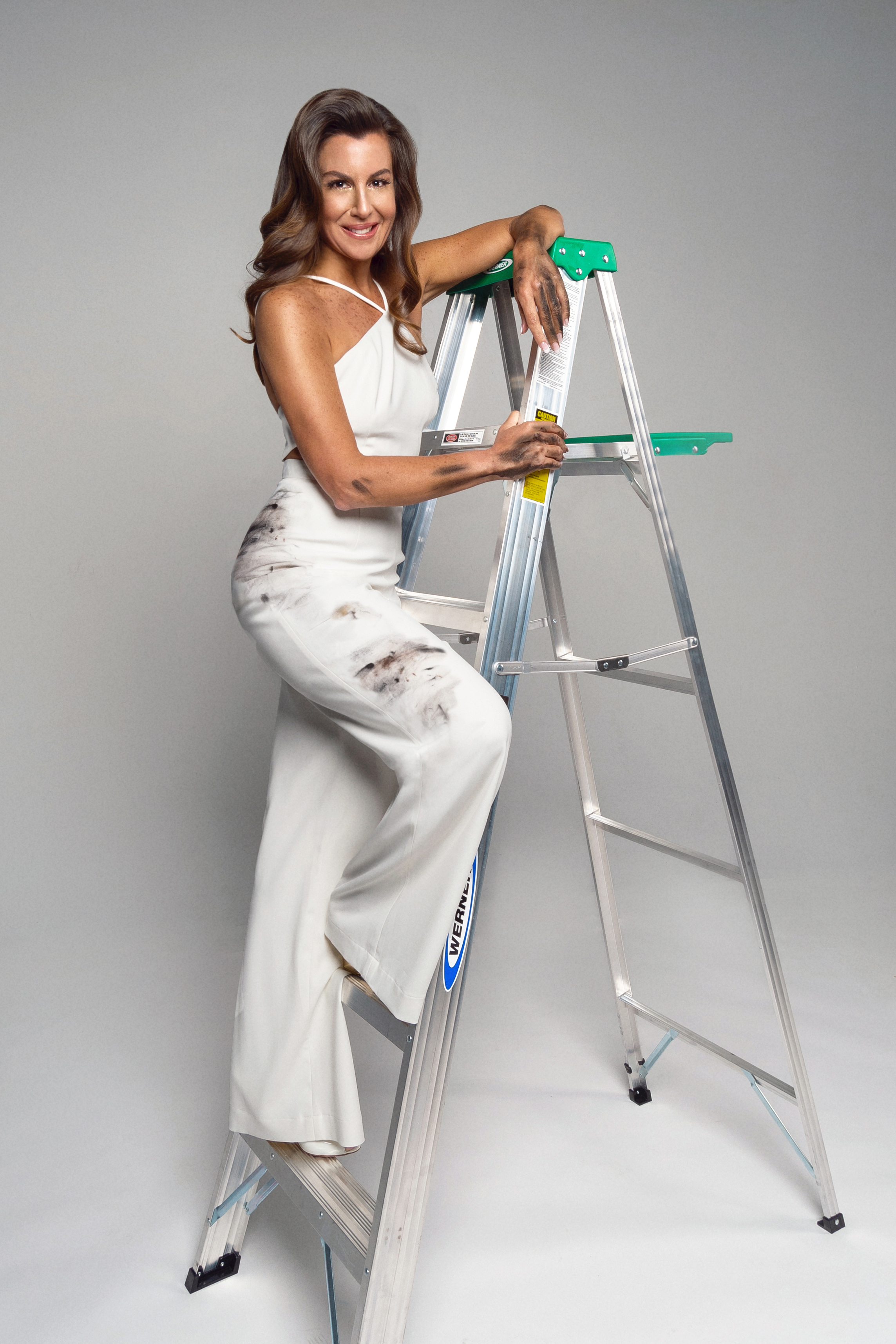
I’m excited! This was not one of my original questions, but I keep thinking about how you share your heart with the world and the giving of this gift. From who do you think you got that? Who put you in a place where you are so giving of yourself?
Well, I’m a giver, not a taker. I know that at heart and that has pros and cons. I would say growing up my mom and my Aunt Margaret, but I would also say what I have seen in the world are a lot of bad leaders, Rachel. I’ve learned what not to do and how to motivate people. I always want to be known as the leader doing the right thing. Maybe that’s why people follow me. Making the tough decisions and grinding it out. It’s totally not what people would expect. I wanted to call it Lean Out, but I wasn’t allowed to say that. People aren’t expecting this. Like CEOs, all the people that are coming to the book party, they’re like, “What in the world?” Oh my gosh. You’re going to learn a lot about me here. This book has stuff that I haven’t even told my mom, my best friend, or anyone. I learned what not to do. Does that make sense?
It does make sense. So when your closet friends and family members read it and find out that there is so much they didn’t know, how do you think they will react? Do you think they will say, “I’m so excited to learn this” or “Rhonda why didn’t you ever tell us this? What could we have done differently?” How do you think they will react to it?
They’re going to have two different reactions. It will be, “Oh my gosh! I’m in the book?” for some of them. For others it will be, “Oh my goodness. This happened? I remember you talking about it, but you didn’t tell me about it in depth.” I’m not a good story teller. I don’t believe, Rachel, in telling stories. I’m all about action. I’m very action oriented, as you know. I do Intense Triathlons, Ironman 70.3 mile distance and long distance runs like 55 miles through Africa. You transition to the next think path. I’m very action oriented. So to sit here and tell stories and give my heart on paper, they’re going to learn a lot and it’s going to be a page turner for them. They’re excited!
I’m excited too and I’m thinking about the previous conversations that we have had. This next question deals with your recent return from Tanzania where you were able to run in the Serengeti and then speak to the beautiful group of young girls. When you reflect on the words of encouragement that you gave to these young ladies, what about the book would be applicable to them?
All of the book would be applicable. As a matter of fact, I’m going to do it again next year, that race. They’ve already asked me to come back and speak, Rachel. All of the book would be applicable to that group because that culture grinds it out every day. They do not take any second for granted. They find their way. They’re in the book, you’ll see. The whole journey, what it meant, spreading my soul and how it impacted me from a different way. This whole book applies to them and I reference them because running 55 miles, well speaking to the girls was my highlight. It wasn’t just a run, as you know. Those girls look up and they need a role model. They reach out! They’re craving what does it take in a tough environment and this book is all about what it takes in every tough situation. Every crisis in the world from Worldcom, 9/11, the Financial Crash, AIG, HP, Lehman Brothers, to Barclays. I was there for all of it. It’s in the book and how you get out of it. They live it like that every day over there. They really do.
They deal with things differently there and are always able to survive. I think we take for granted the different privileges that we have. We don’t even think about the fact that there is someone else has so much more to deal with than we have to each day.
Right. Showing all the cultures in here. Good question!
I’m going to ask you one that’s going to be a little bit off the wall. You know I don’t always stay on the path when asking these questions. I want you to think about your book as a meal. We have the different courses: soup, salad, appetizer, main entrée, and dessert. Which part of the meal is your book and how does the content feed a person’s soul?
It’s the main course and the conclusion is the main course. It’s all substance. It’s solid. It’s not tip toeing around or dabbling in food. It’s not an appetizer; it’s telling the truth. If you go all in, you keep eating and you keep reading until you’re done. It’s that much of a page turner. I think so, but I want you to say. It’s the main substance. It’s the main course. I wouldn’t have written it if it wasn’t dabbling here and there.
A person can walk away full completely and satisfied.
Amen! That was my goal for this. The article that you get won’t do it justice. I keep reading it going Oh my gosh! There’s just something when you put your heart and soul on paper, it’s a different feeling.
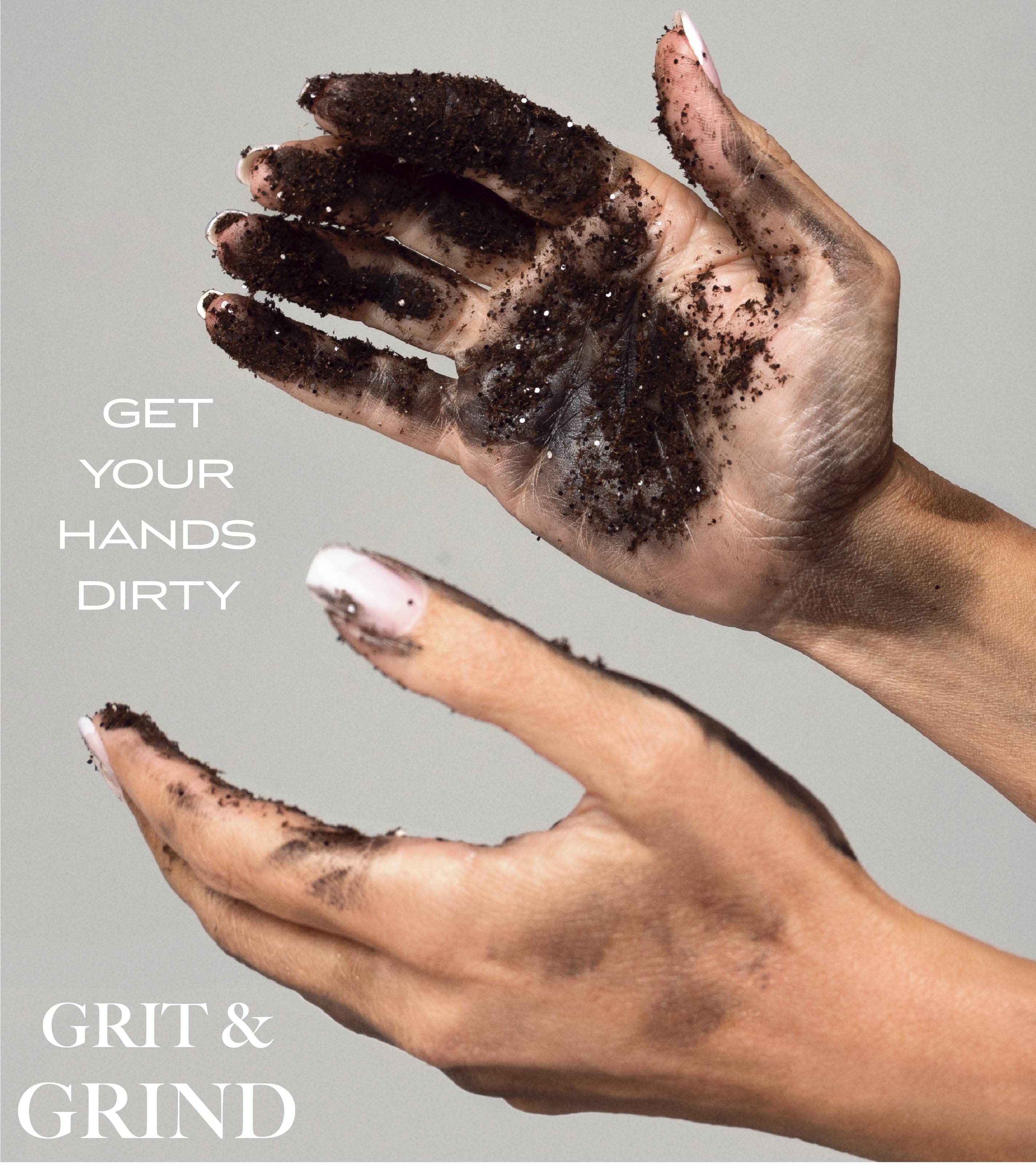
I know you can’t tell the exact details of the cover because it hasn’t been launched yet, but tell me how you were inspired to design your cover the way you did. Talk through the inspiration for the design.
The inspiration for the design…We changed the idea for the cover several times, but the final cover represents getting your hands dirty. It is up close and personal. It has substance, and as I said before, it’s a meal! I wanted it gritty and grimy. I wanted it texturized. I wanted the title to pop. I wanted it elegant, popping, substantive so that someone goes “What is Grit and Grind? What does that mean?” It can mean multiple things to multiple people. That was important to me: multiple facets. It’s not just one genre, one person. It can be anyone from whatever they do in life and that was very important. Very important! I wanted the title to be very simple, clean and concise, an eye grabber, different, standing out and it be relevant. Innovative. I want it to be when someone sees it they say, “What is that? What is it about?”
So they actually want to pick it up and read it.
Yeah. They think, oh this is different! This is a different book. This is actually applied stuff that has happened. This is not made up stuff. It’s all relevant.
What sacrifices do you feel you had to make in order to make this dream a reality and would you say that there was worth within those sacrifices?
A lot of worth! To get this book done, to give this gift to everyone, it’s my heart and soul again, Rachel. It’s worth to me with a big red bow showing people you can do it if you put your mind to it and how to do it. What did I give up? Was it worth it not sleeping? Yes. Was it worth reflecting? Absolutely. Was it worth reliving everything? Absolutely. Was it hard? Yes!
I bet that was hard, reliving it.
Yeah, reliving it you have different feeling of oh my gosh. That really happened! Why didn’t I stop before and really analyze that? That’s what I’m hoping people do with this book: they analyze their lives. Coming back to your book club question, it will flush out stories for other people that happened to them that they didn’t realize how pivotal or profound or defining moment they had in their lives until they start reflecting on things.
There are things that people have probably have blocked out and do not think about them until something triggers it. Reading about it then forces you to have a conversation that you many not have had before.
That is so true.
What does the present day Rhonda want to tell the Rhonda that was 20 years old?
I love that question, Rachel! I do. I do! Travel as much as possible. Take those opportunities and continue to be very mobile. Make change when you want it and you know you need it. I think that’s important. People get stuck. I think growing up now, people are used to being in the same job 20 to 30 years. It’s not our generation so I think it’s very important people recognize that these days. I would have learned to play golf earlier. I come back to that because it’s a big part of “I should have done that earlier.” Lesson learned! I would say there is so much to do and see outside of America, so get exposure as much as possible when you’re young, which I’m glad I did. I’m praying this book does that for people.
To get out of the country is huge!
They need to get out of the country for a long period of time, not just for a week at a time for vacation. You learn more getting out of the country than sitting in a classroom, when you’re working in that place and embedding yourself in a culture. I would tell myself that all of the time and I was the early adopter of that. So this book is even more profound because still to this day I don’t think people know how important it is to get out of the U.S. Not saying that the U.S. is wrong, but actually live in different cultures makes a difference in your perspective. I’m more global now. I would say that, Rachel. I would tell myself to embrace the world. Embrace the world!
I love it all! Thank you so much, Rhonda!
